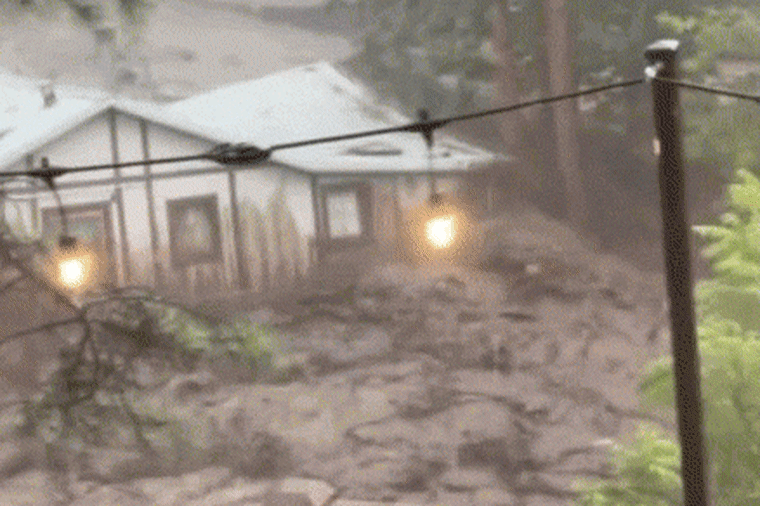At least three people were killed by historic flash floods in a New Mexico mountain community that suffered devastating wildfires last year, officials said late Tuesday.
The remote village of Ruidoso, about 180 miles south of Albuquerque, said a 4-year-old girl, a 7-year-old boy and a man age 40 to 50 were all “swept downstream by the unprecedented floodwaters."
The boy and girl were identified as the children of a soldier on leave from Fort Bliss, the military post in El Paso, Texas, officials said Wednesday. The family were caught in the flood while they were camping near Ruidoso, the base said in a statement.
The soldier and the soldier's spouse sustained serious injuries and were hospitalized in Texas, according to the statement.
"Our hearts are heavy with grief following this devastating loss,” Brig. Gen. Rory Crooks, deputy commanding general of the 1st Armored Division and Fort Bliss, said in a statement.
Additional details about the man who was killed were not immediately released.
Four people remain missing, officials said Wednesday. They added that three people were hospitalized and are stable and that 20 people remain displaced.
The New Mexico medical investigator's office, the Lincoln County Sheriff's Office and other agencies are investigating.
"All three individuals were caught in the rushing floodwaters and carried downstream during the catastrophic flooding event that saw the Rio Ruidoso rise to a record-breaking 20 feet, five feet higher than the previous record," the statement said.
Emergency services carried out 65 rescues in fast-moving waters Tuesday, officials said Wednesday.

"We are united in our sorrow and our commitment to supporting one another as we face this devastating loss together," Ruidoso Mayor Lynn Crawford said in the statement.
The flooding was caused by monsoonal rains that fell on burn scars from the South Fork and Salt fires that occurred last year.
The storms that triggered the floods occurred during monsoon season, which runs from late June to early September. The storms can cause flash floods. Crawford said Tuesday's monsoon flood was one of the worst he has seen.
Videos posted on social media and verified by NBC News showed roads submerged in fast-moving floodwaters and a home smashing into trees after it was swept down Rio Ruidoso.
Crawford said that before the rains, the river that swept away the house was so small "you could have jumped across it."
The National Weather Service reported that the river appeared to have crested at a record 20.24 feet Tuesday. The previous record was 15.86 feet, set last year.
The South Fork Fire ignited on June 17, 2024, and burned through more than 17,000 acres. The fire was so hot that it turned the soil hydrophobic, meaning it does not absorb water, Crawford said. There was flooding in the community last year.
New Mexico Gov. Michelle Lujan Grisham signed an emergency declaration request Tuesday night, seeking aid from the federal government.

